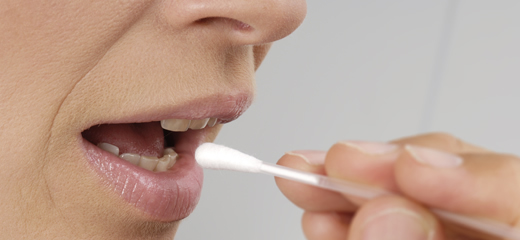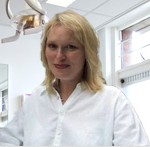Gum Disease May Be Influenced by Genetics
Published:April 24th, 2013 Gum disease is an extremely serious condition that is not only the major cause of tooth loss in the world, but which also has serious ramifications for overall health. The importance of avoiding this common disease is always being stressed by dentists and hygienists. However now it looks as if the chances of developing gum disease or periodontal disease may have some connection with genetics.
Gum disease is an extremely serious condition that is not only the major cause of tooth loss in the world, but which also has serious ramifications for overall health. The importance of avoiding this common disease is always being stressed by dentists and hygienists. However now it looks as if the chances of developing gum disease or periodontal disease may have some connection with genetics.
Research carried out at the North Carolina School of Dentistry has confirmed periodontal disease is a heritable disease which is found in some form or other in nearly half the population. However it’s also been found that genes play a large role in the development of this disease. This is giving scientists new insights into how periodontal disease works and how it may be treated more efficiently and effectively in the future. Researchers have identified six different genes and 12 different pathways that play an important role in the nervous system and immune function, and which are involved in periodontal disease.
It’s the thought having variants of these genes may increase or even decrease some people’s risk of developing periodontal disease. It depends on how these genes interact with one or other, and how they interact with other environmental factors such as smoking. The research team has put forward a hypothesis that genes in the nervous system and the immune system play off one another increasing a person’s predisposition towards developing chronic periodontal disease.
Researchers already know that it isn’t the bacteria that cause the damage to teeth and gums, but rather the body’s response to the bacteria. When our bodies detect the presence of harmful bacteria in the mouth than the nervous system elicits a response to try to control the infection. This response creates the inflammation that causes so much destruction in the mouth. Research into this connection is still in its very early stages, but it is an interesting discovery.
Preventing Periodontal Disease
Obviously most of us aren’t likely to find out whether we are more at risk of developing periodontal disease than others, but this study does highlight the need to be vigilant over oral care. Most cases of periodontal disease develop as a result of poor oral hygiene, so twice daily brushing and flossing once a day, combined with regular dental visits and professional cleanings should greatly diminish the risk of this disease for the majority of people. However some groups are more at risk than others, including people with diabetes or other diseases that affect the whole body such as heart disease. People falling into this category may need to visit the dentist more frequently, and might need to have their teeth cleaned professionally more often than every six months or so.
Better Oral Health Can Lead to Fewer Trips to the Hospital
The benefits of taking care of your oral health are well documented, and another recent study by a dental clinical advisory panel found that people who received treatment for their periodontal disease needed to visit the hospital less frequently, and had fewer trips to their local out-patients than those not receiving treatment. Their annual medical costs were also approximately 28% lower. Research into the connection between good oral health and good overall health is still on-going, but so far it seems pretty clear that one greatly affects another.
About the author
 Alison, is a UK born and educated dental professional with over 25 years experience.
Alison, is a UK born and educated dental professional with over 25 years experience.





Write a Comment of Gum Disease May Be Influenced by Genetics